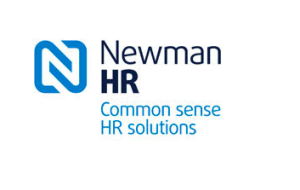
The government’s ‘Living with Covid-19’ plan recently issued is aimed at enabling the country to manage Covid-19 like any other respiratory illness, while retaining the ability to respond if a new, more dangerous variant emerges. Covid is still with us and in fact infections seem to be higher than ever although mercifully hospitalisations and deaths are substantially lower. After two years of living with restrictions and adapting to the evolving Covid climate, employers seeking to deal with the virus going forward need to consider the right approach and policy for their business. Remember the government has withdrawn the covid SSP support since March 23rd so if anyone is off sick with covid or self-isolating because of contact with covid infected staff unless you have an enhanced company sickness policy they are only entitled to £99.59/week statutory sick pay from the 4th sickness day onwards.
Employers when dealing with covid issues need to reflect on the concerns set out below and tailor their policies and procedures accordingly
Health and safety
The end of the legal obligation to self-isolate does not prevent employers from having their own rules on workplace attendance. Employers still have a legal duty to take reasonable steps to protect the health and safety of their workforce. With the government’s stated intention for businesses ‘to take responsibility for implementing mitigations that are appropriate for their circumstances’, employers need to decide what their approach to self-isolation will be. Employers will need to make clear decisions around workplace attendance and importantly communicate this clearly and as early as possible to staff. Typically, this would be via a policy which may, for example, state that individuals who test positive and/or who are displaying Covid symptoms are required to work from home for a period of time and if they are unable to work from home what steps the employer will take to address the situation.. Employers should also be prepared for questions from employees who elect to self-isolate, in particular around sick pay entitlements.
Protecting vulnerable colleagues
Employee concerns and the dangers of Covid must still be considered within the context of any personal vulnerabilities; measures that may be sufficient to reduce the danger for most employees may not be adequate for others. For employers, this will continue to involve consideration of individual risks in relation to clinically vulnerable staff or employees who live with clinically vulnerable people, particularly if Covid-positive employees attend work. To protect staff, employers may also choose to provide staff with testing kits supplied by the organisation now that free test kits are no longer available after the end of free government tests, or to encourage hybrid working for those who may require this.
Mental health
It’s important to remember that an employer’s duties regarding health and safety require employers to consider employee mental wellbeing. The pandemic has taken a huge toll on mental health, with employees perhaps suffering from ongoing stress, anxiety, depression, or other health concerns. Just because the government has chosen to remove all remaining restrictions, will not necessarily mean that your employees will be able to adapt their personal approach and apprehensions about Covid so quickly and therefore may need some time to adjust. It is important that employers continue to acknowledge and respond to employee mental health concerns and keep an open dialogue with staff about wellbeing and safety. Employers should be mindful that certain mental impairments could constitute a disability under the Equality Act 2010 and will trigger a duty to make reasonable adjustments to an employee’s duties or to the workplace to alleviate any disadvantage. The beginning of this month has also seen large increases in fuel, utilities, groceries etc. these cost-of-living increases will add to the pressure and anxiety of employees
Recording vaccination data
Employers that have previously recorded vaccination or other health data and provided the reasons for doing so in an employee privacy notice will now need to review their reasons for recording this data to continue to comply with GDPR. With the changing government approach, employers will need to consider whether they need or want to continue to capture this health data and whether it is still necessary or proportionate to do so.
The Covid pandemic has caused significant changes especially to the office-based workplace. More people have worked from home others have embraced hybrid working. Most employers have been pleasantly surprised that efficiency and productivity have not suffered. However, to shift from adhoc arrangements to permanent changes it is necessary formalise the new arrangements by amending employment contracts, adding home or flexi working policies to handbooks and risk assessing those areas which are designated as homework spaces to ensure they are fit for purpose both for the employees’ health and wellbeing and that they are secure and are robust enough to fend off virus attacks without breaching GDPR regulations.
NewmanHR are members of Laurel Leaf Networking.

